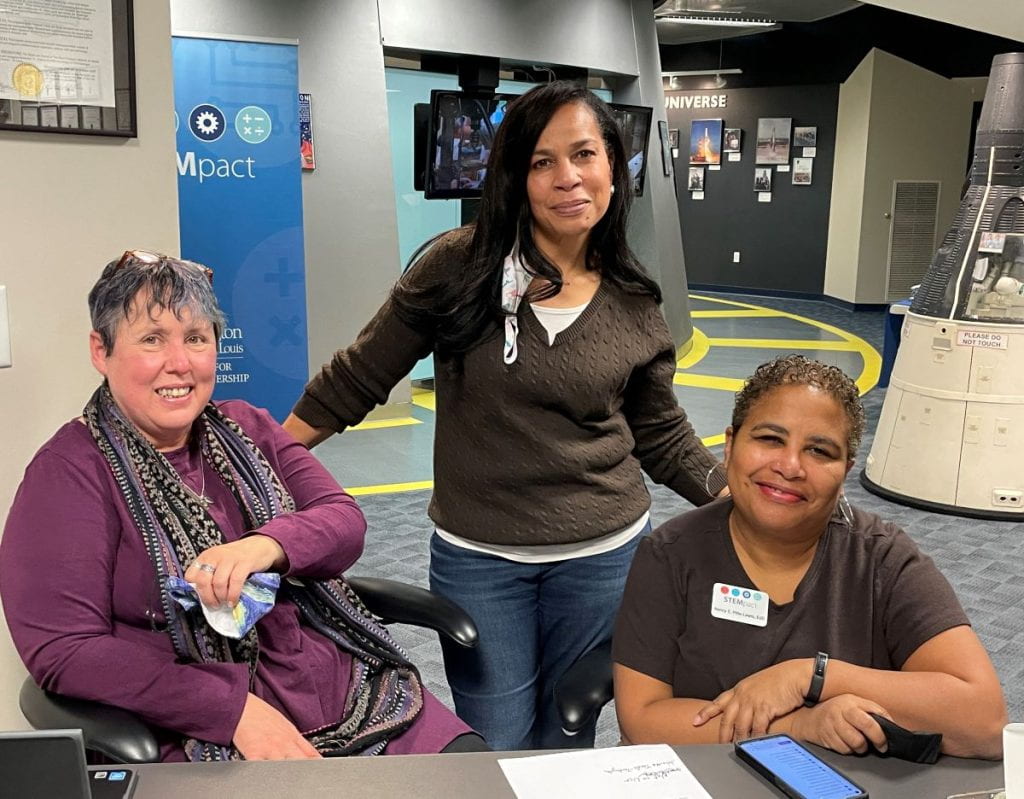V. Barbara Pener has been selected to serve as program director for STEM Teacher Quality (TQ), an immersive year-long STEM professional learning experience that has equipped 1,071+ and impacted 35,000+ students throughout the Greater St. Louis region since 2011.
Pener takes the helm of the program administered by the Institute for School Partnership at Washington University (ISP) having served as a facilitator since 2015 and project coordinator for the last four years, working closely with following outgoing director Deborah Holmes. Holmes retired this spring after co-launching and leading the STEMpact supported program for ten years.
“We are thrilled that Barbara will continue the legacy of excellence that teachers in our region have experienced by participating in STEM TQ. This program is designed to enhance teaching and learning about science, technology, engineering and math, and Barbara’s depth of knowledge and commitment to STEM equity will make the transition seamless as we continue to identify and meet the evolving needs of the schools and districts with which we proudly partner.”
Victoria May, ISP Executive Director
Pener is a retired teacher who spent 30 years in education, all served in the Kirkwood School District, where she taught health & wellness, chemistry, astronomy, technology, earth science, coding, and robotics. She also served as science fair facilitator, a member of social justice and educational equity committees, the African American Achievement Task Force, technology leadership team, as building level science department chairperson, track and field coach, NEA officer, and competitive robotics coach. She is an educational consultant for the ISP, assisting with review and writing of mySci science and technology curriculum, as well as professional development facilitation. She is also part of a teaching team which developed Geospatial Thinking for Teachers, a Washington University College course for STEM educators she will teach in the fall. She serves on advisory boards of the Missouri Botanical Garden and the STEMSTL Ecosystem, a collaborative consortium committed to equitable access to high-quality STEM learning for all students in the St. Louis metro region.
A past STEM TQ participant herself, Pener looks forward to inviting the program’s eleventh cohort of teachers to begin a year-long experience that launches with STEM TQ Summer Institute.This year, 60 teachers representing 14+ schools and districts will join the STEM TQ team for two weeks of immersive learning designed to invite teachers to see the STEM learning and career pipelines that exist in the region. Pener’s predecessor, Holmes, believes she’s more than equipped for the task.
“Barbara is an enthusiastic leader and teacher who has years of experience with STEM TQ,” Holmes says. “She has great ideas, a great team and a clear understanding of high quality professional learning.”
STEM TQ Summer Institute kicks off at Pershing Elementary in University City July 10-21. The cohort model program continues throughout the academic year, with after school and full day STEM professional development events.
“STEM is everywhere,” says Pener. “We’re excited to equip even more teachers to inspire and prepare students for STEM success. When we have STEMcapable teachers and students, our entire region benefits. We want teachers, and in turn, students, to know there are incredible STEM opportunities right here in our region! We endeavor to diversify the STEM workforce. The key is exposing educators and students to STEM concepts and careers early in their academic careers, especially those groups underrepresented in the STEM pipeline.”
